Britain has recently witnessed its most severe civil unrest in more than a decade, with anti-immigrant and anti-Muslim riots erupting across the nation. The violence, ignited by the stabbing of three young girls in Southport last month, has since calmed. However, the country remains on the edge, confronting the repercussions of a crisis that has laid bare a profound division within its society.
The unrest began when far-right groups capitalised on the tragedy, using the attack at a dance class in northwest England as a rallying cry to incite a wave of hate-fueled violence across the country. Then, super-spreader accounts on social media, particularly on X, formerly Twitter, amplified disinformation from a little-known account called Channel 3 Now, falsely claiming the perpetrator was a Muslim asylum seeker. This misinformation triggered mobs to target mosques, assault police officers, and vandalise asylum centres. Within no time, the chaos spread from Southport to Sunderland, London, and beyond, reaching as far as Belfast, in Northern Ireland.
Media reports indicate that the police have arrested 17-year-old Axel Muganwa Rudakubana in connection with the Southport killings, charging him with three counts of murder and ten counts of attempted murder. Details released by the Merseyside Police confirmed that Rudakubana is neither a Muslim nor a migrant. Contrary to the false reports initially circulated by Channel 3 Now—an X handle known for mixing AI-generated news with entertainment and claiming management by individuals based in Pakistan and the US—Rudakubana was born in the UK to Rwandan parents. But by the time Channel 3 Now was confronted and an apology was issued, the false information about the Southport killings had already spread widely on social media, amplified by several accounts, including controversial influencer Andrew Tate, who has over nine million followers on X. Even Elon Musk, who has owned X since 2022, contributed to the swirl of misinformation by retweeting unfounded far-right claims at one point. Before being deleted, the post had already gained millions of views. Experts argue that Musk, with his vast following of over 200 million, has played a role in turning X into a safe haven for far-right ideologies. Later, during an online clash with the British Prime Minister, Musk responded to a post alleging that an “armed Muslim” patrol group had attacked civilians and a news crew by tweeting directly at Keir Starmer: “Why aren’t all communities protected?” A few days earlier, Musk tweeted that “civil war is inevitable” in the UK, in response to claims that “open borders and migration” had fueled the protests. The British government condemned the post immediately.

But Britain’s problems extend far beyond the false information circulating online. The deeply ingrained, negatively charged rhetoric has been embedded in British politics for decades, with roots tracing back to 1919, when the belief that foreigners were ‘stealing’ jobs contributed to riots and attacks on black and minority ethnic communities in British port cities. This deadly racial unrest resurfaced in 1948 in Liverpool, not far from Southport, and again in 1958 with riots in what is now known as Notting Hill. Politicians, including Enoch Powell, further polarised the nation with his inflammatory “rivers of blood” speech in 1968, which became one of the most schismatic moments in modern British history. Back then, Powell’s speech sparked widespread protests in support of his calls for immigrant repatriation. The use of such rhetoric did not end there. Politicians have since employed similar language to secure victories or appeal to voters. Long before Conservative Home Secretary Suella Braverman publicly lent her support to the far-right in an article, Margaret Thatcher infamously remarked in 1978 that ‘people are really rather afraid that this country might be rather swamped by people with a different culture’. The Labour Party, too, has used charged rhetoric, with former Prime Minister Gordon Brown promoting the phrase ‘British jobs for British workers’. Experts warn that these toxic statements have poisoned the political debate in the UK, normalised Islamophobia, and reopened wounds that many hoped had healed. Even during the recent riots, Nigel Farage, leader of Reform UK, continued to engage in “dog whistle” politics, lending credibility to far-right claims rather than easing tensions. As the scars of anti-immigrant and anti-Muslim unrest linger, a growing number of experts are linking these issues to escalating economic grievances and inequalities, which the far-right has exploited despite research showing that immigration is generally beneficial for most economies. For decades, far-right leaders have skillfully exploited these frustrations to mobilise supporters and advance their political agendas. This underlying issue, however, remains glaringly absent from the discourse, even as British Prime Minister Keir Starmer addresses the situation. In his first speech following the attacks, which unmistakably targeted migrants and Muslims, Starmer—whose post-election honeymoon was abruptly cut short—euphemistically referred to the unrest as "violent thuggery" rather than addressing it directly as anti-immigrant and anti-Muslim riots.
To understand the implications of the recent unrest in the UK, the Express Tribune conducted a no-holds-barred interview with Humza Yousaf, former First Minister of Scotland. As the first person of color to lead the Scottish government and a Muslim national leader in a Western democracy, Yousaf sees these events as yet another deeply divisive moment in the UK’s history. Here’s what he had to say:
ET: How would you define the recent riots in the UK? Are they solely based on anger, or do they reflect a mix of sentiments such as racism, anti-Muslim bias, and other factors?
HY: Well, let’s be clear from the outset: these are riots, not protests. They are acts of violence and disorder. They are being driven by several factors, primarily the integration of far-right language into our mainstream political and media discourse. This rhetoric, fueled by anti-Muslim and anti-migrant sentiments, as well as general xenophobia, has been normalised over years. This normalisation is deeply troubling because if we don't address the root causes, this violence will continue to occur repeatedly.
ET: We’ve seen mainstream political parties, particularly the Conservatives and Reform UK, and to a lesser extent Labour, institutionalising and normalising inflammatory rhetoric. What dangers does this pose for Muslims, immigrants, and other minority groups?
HY: The normalisation of anti-Muslim and anti-migrant rhetoric hasn’t just been happening for years—it’s been going on for decades. Take the recent general election, for instance. One of the re-elected figures was Suella Braverman, the former Home Secretary, who wrote an article in a leading UK broadsheet claiming that Islamists are taking over—a blatant dog whistle against Muslims in the UK. We also saw the election of Nigel Farage, who once suggested that Muslims in the UK were a fifth column, here to kill us, and claimed that Muslim migrants are coming to take over, and that British Muslims don’t share British values.
So now, we have elected MPs from different political parties who have spent their careers using the language of the far-right, bringing it into the mainstream. The consequence of this is clear: if we don’t address the root cause, the next time there’s a violent incident or disinformation spreads, the outcome will be the same. Mosques will be attacked, black and Asian people will be targeted, and we’ll see the same cycle of violence repeat itself time and again.
ET: An increasing number of Muslims and other communities feel insecure. What does it mean for the UK’s social cohesion when significant subgroups feel their sense of belonging is being questioned or challenged?
HY: I think, ultimately, this leads to a society where minorities do not feel safe and begin to question whether they have a future in the United Kingdom. One of the strengths of the UK has been its multiculturalism. I don’t know if there are many other countries in Europe where the Prime Minister could be a British Hindu, for example. I, as a former First Minister, was a Scottish Muslim of Pakistani descent, and the Mayor of London is a British Muslim of Pakistani descent. So, multiculturalism has been good for the United Kingdom. Migration has been good for the United Kingdom. But when Muslims, migrants, and people of colour feel insecure, they may decide that their future lies elsewhere. If that happens, I’m afraid, to be blunt, the UK economy would suffer, and public services, including the NHS, would absolutely collapse.
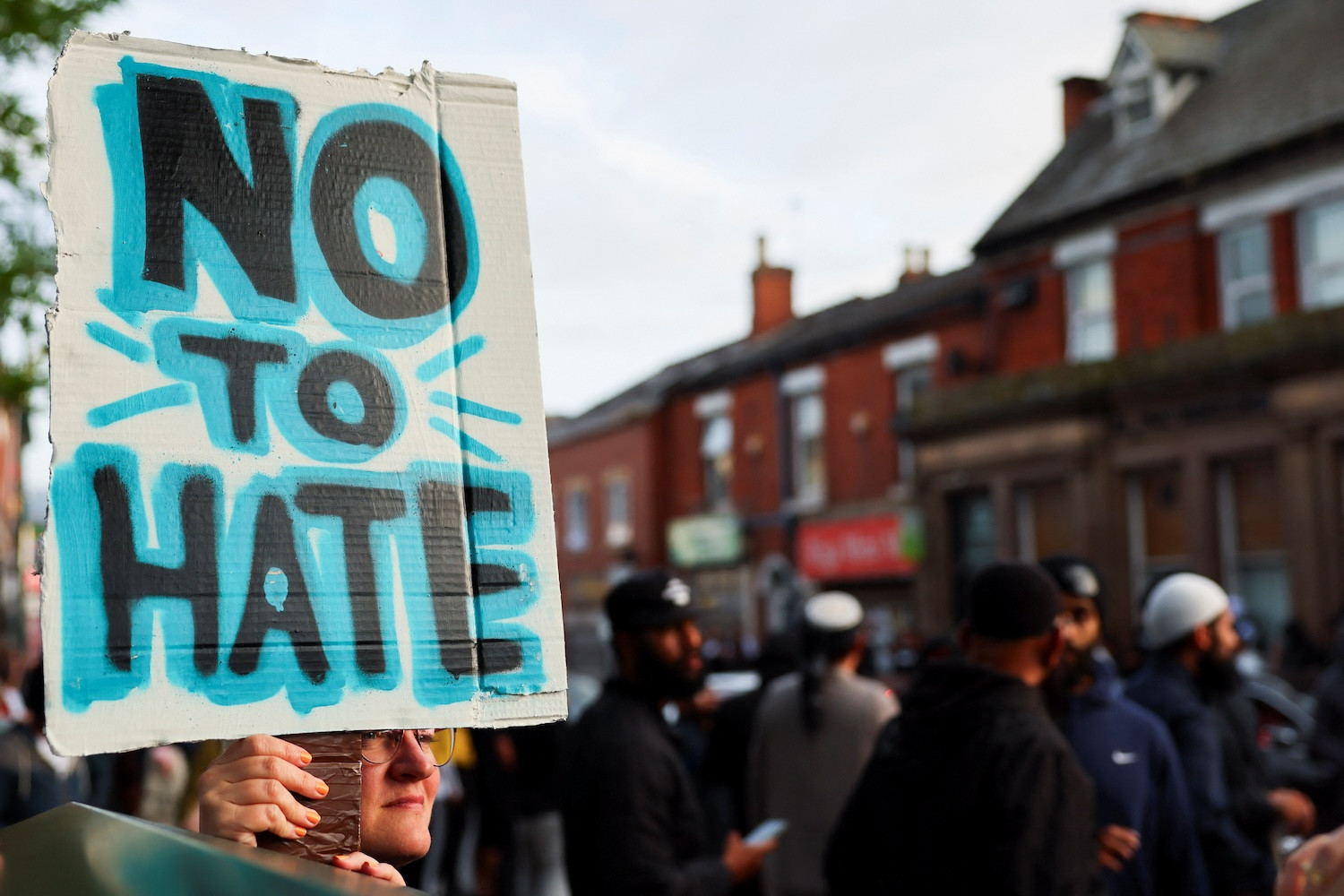
ET: Although Scotland may not be directly affected at the moment, what concerns have you been hearing from members of the Muslim community about the situation in the UK?
HY: Scotland hasn't, thank goodness, seen these race riots in our country. And I don't think it's by accident. I think it's because the political discourse in Scotland for the last 25 years, since we've had a Scottish Parliament, has been positive about migration. And that's not just my political party. Other political parties in the Scottish Parliament have also been pro-migration because they understand that Scotland needs migration.
We’ve faced a historically declining population for many years, so the importance of migration is well understood by politicians here in Scotland. Although Scotland is not immune to racism or Islamophobia—I have personally experienced many threats and instances of abuse over the years. At this point, Muslims across the United Kingdom, including in Scotland, Wales, and Northern Ireland, are questioning whether their families have a future here. This is a deeply depressing and worrying state of affairs.
ET: The British Prime Minister has described the protests following the Southport stabbing as ‘thuggery and violence.’ Do you think this is an accurate description, or should these events be more precisely labeled as Islamophobic or anti-immigrant riots?
HY: You're right. It's only a partial description. And let me say I've commended Keir Starmer for being robust in his approach to tackling these riots and disorder, but you have to call it what it is. If you can't call it what it is, then you won’t be able to tackle the root cause. And the UK government, including the Prime Minister and his cabinet, must acknowledge that the driving forces behind the far-right movement are anti-Muslim and anti-migrant xenophobia. It is clear that this unrest is fueled by anti-Muslim hatred. We can see that because mosques were attacked. We heard some of the vilest Islamophobic chanting in the streets and, of course, anti-migrant rhetoric. How else would you explain the fact that rioters and thugs tried to set fire to a hotel that had vulnerable migrants inside? So you have to call it what it is. Otherwise, there's no way you will be able to address the root causes.
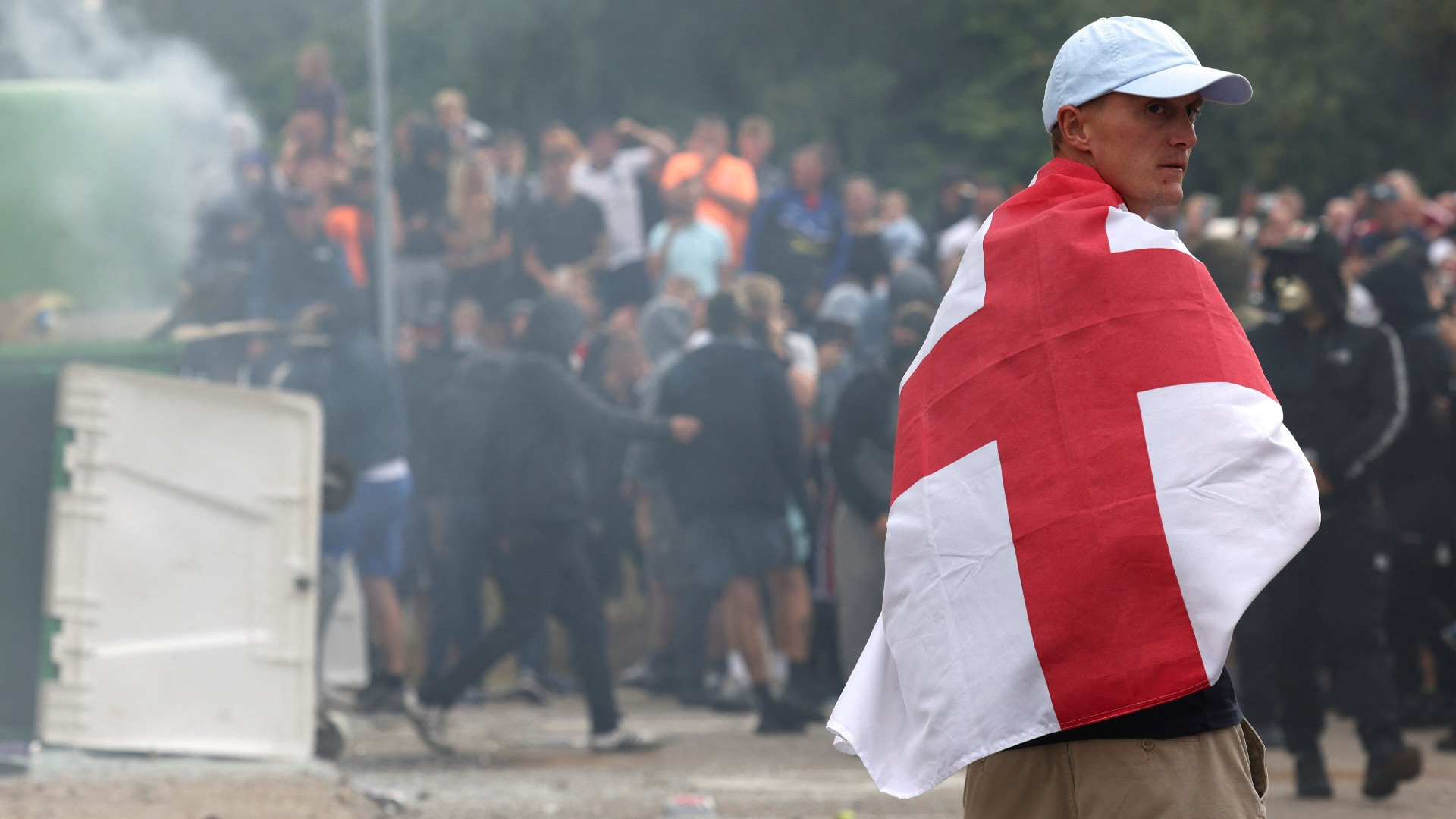
ET: The British mainstream media, including ITV, has been hesitant to label the recent events as Islamophobic or describe them accurately. What are your thoughts on this approach to reporting the incident?
HY: Well, I have to say the media should take a long, hard look at itself. For many years, especially those in the right-wing media and press in the United Kingdom, there has been a long history of fueling racial and religious intolerance. In terms of other news outlets, more mainstream news outlets, they have to call it what it is.
They have a responsibility to call it what it is. If they don’t, Muslims may question why they are being treated differently, especially when anti-Muslim sentiment and Islamophobia are clearly driving these riots. The attacks on mosques make it evident that the underlying issue is Islamophobia. The media must accurately label this situation – otherwise, it will only deepen the sense of unjust treatment among Muslims.
ET: Racially charged rhetoric and dog whistles have been present in British political history since 1919, becoming particularly infamous in 1968 when Enoch Powell, a conservative leader, warned of bloodshed if immigration was not halted. Former Prime Minister Gordon Brown declared that ‘British jobs are for British workers.’ More recently, former Tory Prime Minister Rishi Sunak introduced the Rwanda policy, which has been widely seen as an endorsement of far-right rhetoric. Is the political establishment turning to far-right ideologies or rhetoric strategically to win over voters when it suits their interests?
HY: You’ve hit the nail on the head. For many decades, politicians have often chosen to blame migrants and other groups for their own political failures. This issue extends beyond just the government and affects various sectors of society. For example, a common complaint is the difficulty in accessing housing. Politicians might suggest that migrants are taking houses away from locals, which is not true. Asylum seekers and migrants do not skip the queue. The real issue is that in 1979, there were 6.5 million council houses, but now there are just over 2 million. The problem is not the migrants; it is the politicians who failed to build enough houses.
This is just one example. Politicians and those who exploit populism often present overly simplistic solutions to complex problems. This needs to be addressed. I am hopeful that the current UK government understands this. I would advise the Prime Minister to make a speech soon, acknowledging that for too long, British media and political discourse have pandered to the far-right. It’s time to shift the narrative. We should speak positively about the benefits of migration and multiculturalism. Yes, there may be issues and challenges, and we should discuss them openly. But the starting point must be that migration and multiculturalism have been beneficial for the UK and are essential for its future.
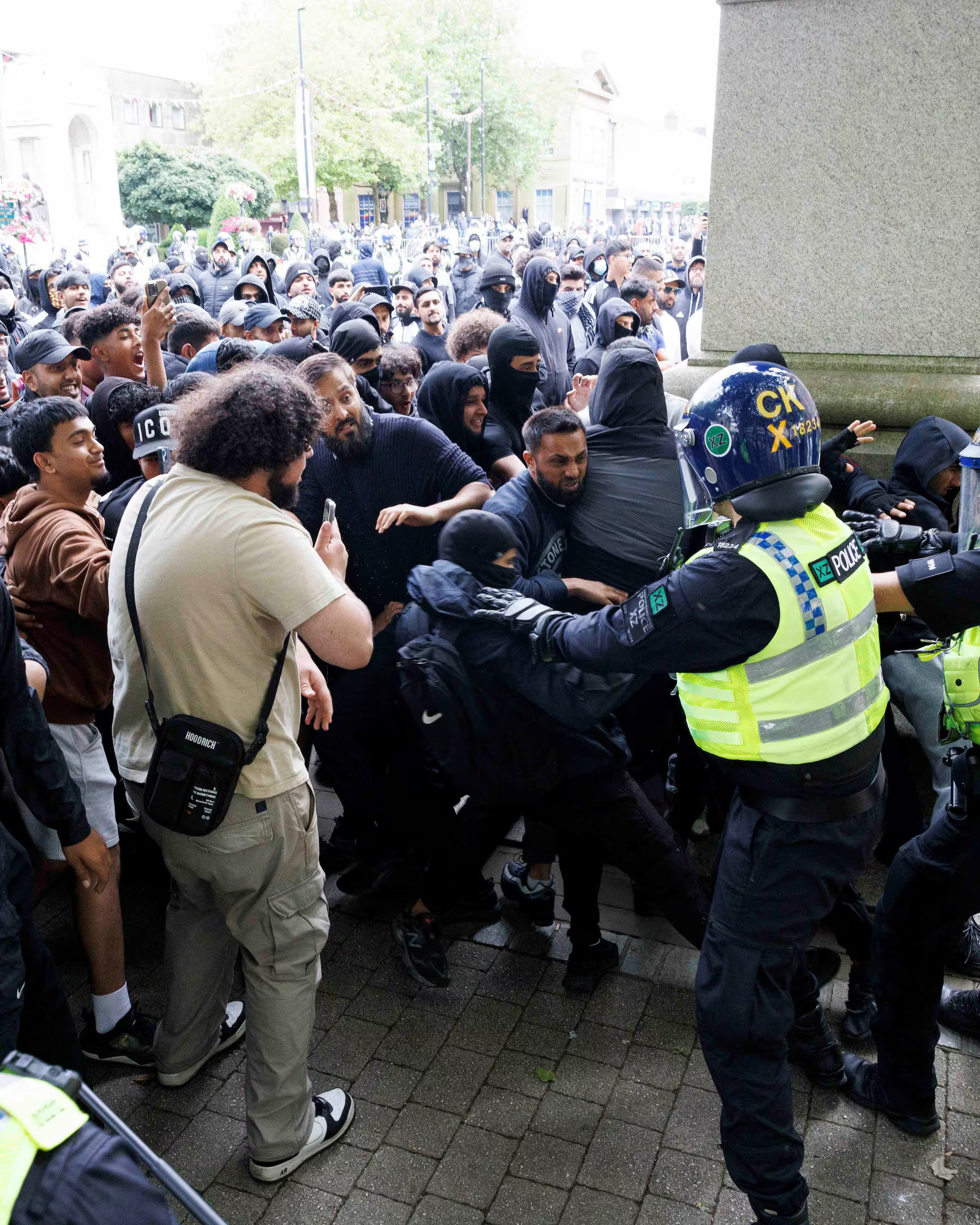
ET: Research shows that migrants generally do not occupy jobs typically held by the local population and often secure employment in sectors distinct from those of native workers. Are right-wing leaders amplifying this fear?
HY: Of course it is. Let’s be clear – almost every peer-reviewed study shows that migrants contribute more than they take. There are challenges around public services, and we need to be aware of that. I don't want to see a single person having to cross the channel on a boat, but that just shows how desperate they are. I'm a father of three girls. It would have to be the absolute height of desperation to consider putting them on a rubber dinghy across the channel knowing that they may or may not survive. These are desperate people. The problem with the United Kingdom is that we lack sufficient legal migration routes, forcing individuals to resort to illegal methods. The United Kingdom needs migration for its future. Scotland absolutely needs migration – it is vital for our economy and public services. We need a sensible conversation about the benefits of migration, as well as the challenges it presents. Let's not delve into populist rhetoric, which simply I'm afraid is a spark for some of the disorder and the violence that we've seen in recent weeks.
ET: Considering that the dehumanisation of subgroups, minorities, and refugees can escalate tensions, has the government taken any concrete steps to reduce this rhetoric and address the underlying issues?
HY: We have a new government in the UK, which has been in place for just over a month. Let's give them time and judge them according to their actions. I hope they will be an improvement over the previous Conservative government. However, let me be clear: the dehumanisation of migrants has been ongoing under the Conservative government for the last 14 years.
For example, one of the leading candidates to be the next Conservative party leader is Robert Jenrick, a former Home Office minister. Jenrick ordered that cartoons painted on the walls of centres for unaccompanied child asylum seekers are removed. So that is where the dehumanisation begins. Why should unaccompanied migrant children, who don’t have their parents with them, be allowed to look at cartoons? So paint over the walls and make sure that they're not made in any way to feel safe, secure, or welcome. Well, those are the actions of a former government minister. That's where dehumanisation begins. It doesn't happen in a vacuum.
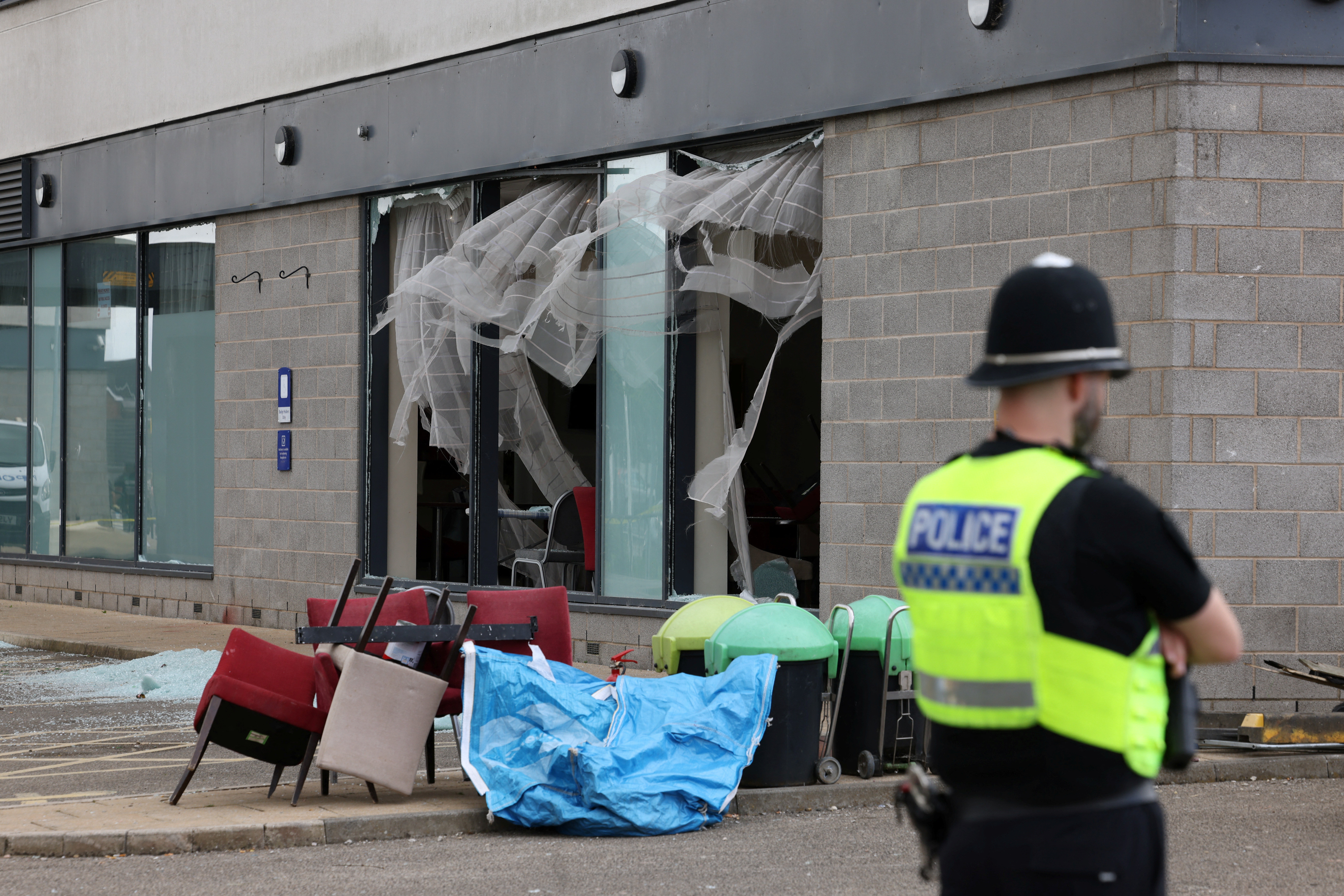
ET: Social media platforms have played a significant role in the recent riots. What are your thoughts on the steps the government has taken to address the spread of divisive and false information on these platforms? You’ve referred to Elon Musk as a smart but dangerous individual in one of your interviews. Do you still hold this view?
HY: First and foremost, not nearly enough is being done to tackle the rampant disinformation that spreads like wildfire on social media platforms. The tragic killings in Southport are a prime example, where disinformation about the alleged perpetrator spread unchecked. It was suggested that the alleged killer was a Muslim migrant, when in fact, he was neither a Muslim nor a migrant. He was born here in the United Kingdom.
However, this information was allowed to spread unchecked and unregulated, without any consequence. Furthermore, far-right conspiracies have been amplified by Elon Musk, who clearly has sympathies with white supremacy and neo-Nazi far-right ideology. He is not accountable, as he is not a politician and does not face elections. He uses his vast wealth—being one of the richest men in the world—for wicked and harmful purposes. This is not ignorance but a calculated action that makes Musk, as I said, one of the most dangerous men on the planet. Social media platforms must be regulated, or they will continue to spread disinformation, which leads to the devastating violence we witnessed on our streets in the UK over the past two weeks.
ET: Recently, there has been a significant rise in the influence of far-right parties in the European Parliament. Is Europe collectively ignoring these issues and threats? What are the potential dangers of this trend?
HY: The rise of the far-right and populism is evident in Europe and the West. It is fueled by anti-Muslim and anti-migrant rhetoric. This is not a new phenomenon, it has been occurring for decades. Recently, we've seen the rise of the far-right in France, Germany, the Netherlands, and here in the United Kingdom. Unfortunately, many politicians have adopted this language, mainstreamed it, or turned a blind eye to it. Now, those on the extremes are gaining seats of power. For example, in the Netherlands, Geert Wilders and his Freedom Party have become a leading political force in the Dutch government. This reflects the growing influence of the far-right across European and Western governments. Let’s not forget that, by conservative estimates, there are 25 million Muslims in Europe, if not more. If they do not feel safe and secure, many may choose to leave, making Europe a poorer place as a result.
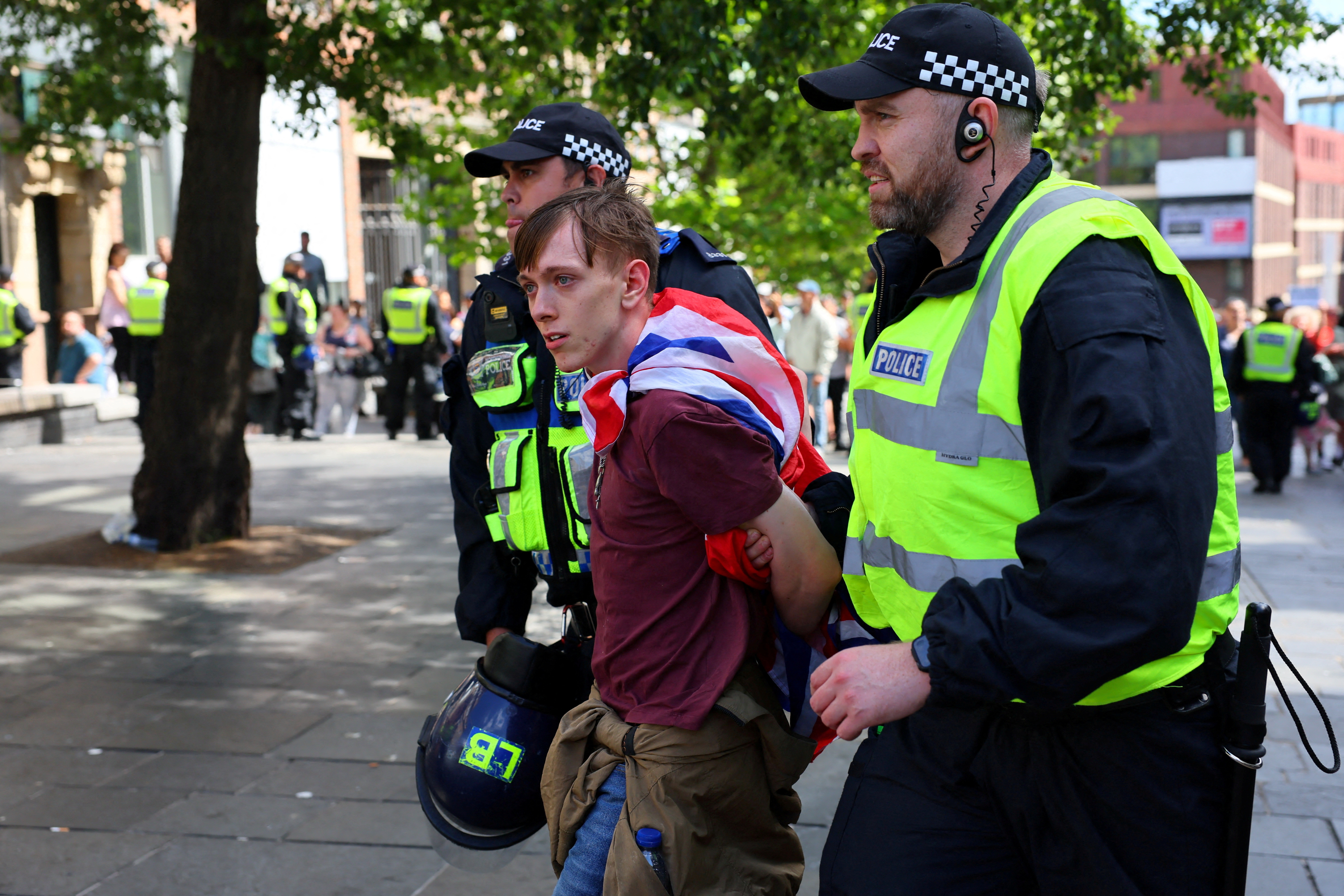
ET: A few years ago, your father issued Pakistani ID cards and passports for the family, a decision you questioned at the time. Do you still view that move as a mistake?
HY: You're right—my father made the identity cards and the Pakistani passports. I regret my feelings back then, shared with my siblings, about our father's decision to obtain the documents for the family. We asked him, “Why?” and he responded, “Well, you never know, someday we might have to go back.” My siblings and I would laugh and say, “My goodness, why would we ever have to leave?” Now, it's come full circle because I'm questioning whether the UK will be safe for my family in the future. Don’t get me wrong— I don't want to go anywhere. I'm proud to be Scottish, have lived in Scotland, and have raised my children here. My daughter just started her primary school in Scotland. I don't want to be relocated. I'm the former First Minister of this country. But I have to consider: will my children be safe in the UK if they grow up going to a mosque? Will they be targeted or attacked because they look different from the majority? That's a question I think every Muslim I know in the UK is asking themselves.
